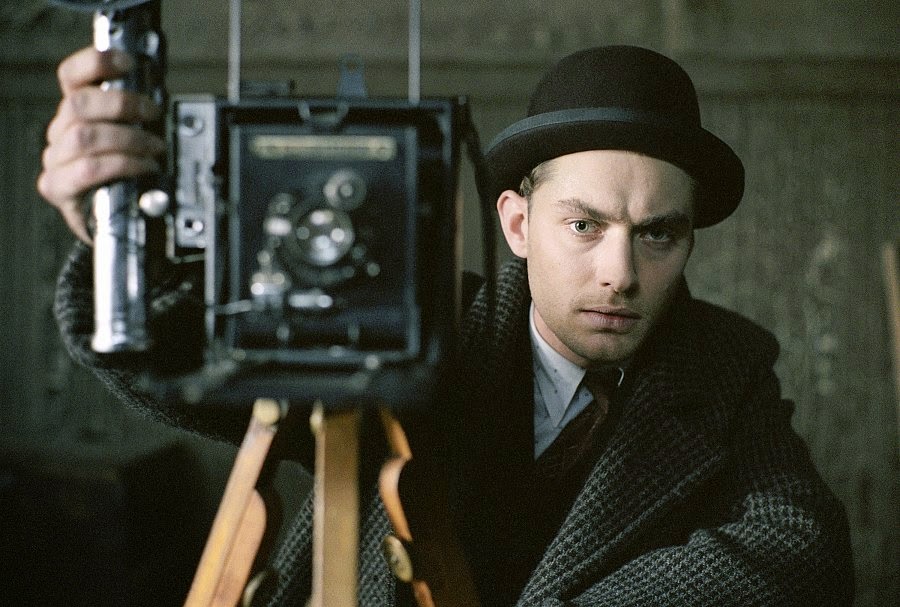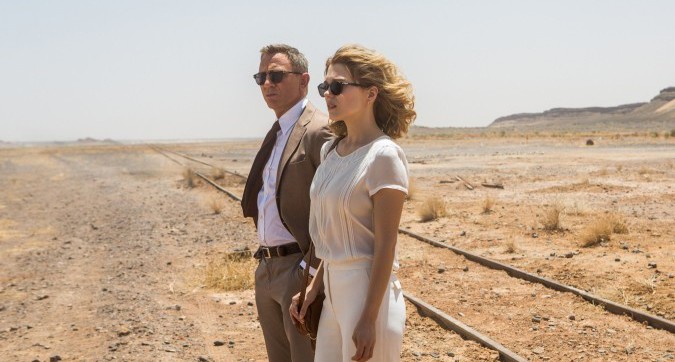
Though he began in theater and never abandoned it, Sam Mendes can only be considered a British film director based on how many Bond films he has to his name. Deemed Best Director right off the bat for his debut film American Beauty, the English director would spearhead many films focusing on particularly domestic concerns up until he gave his life over to 007 for several years.
Needless to say his film career has had nowhere to go but down, but Mendes has worked his way in and out of relevancy without lack of trying. Likely burned out from Bond, Mendes seems content continuing his devotion to the stage from Shakespeare and Willy Wonka. His seven films over the course of 15 plus years has left us with plenty to examine – Mendes’ filmography is diverse and unpredictable.
7. Spectre

On the level of craft alone, Spectre is decent. But just as a spy film, let alone the longest and priciest installment in the most enduring film series of all time, Spectre is dull and stupid even for Bond.
Attempting to emulate everything that worked so well between Mendes and director of photography Roger Deakins in Skyfall, Spectre stylistically offers more grand scale, faux art-house Bond. Even though cinematographer Hoyte von Hoytema does his best to recapture Skyfall’s vibrancy, the script doesn’t allow him the opportunity to conjure anything visually memorable.
With an indulgent two and a half hour runtime and a 250 million dollar budget, one would hope that the end product wouldn’t be lacking in tonal consistency, engaging action or much purpose beyond exaggerating the stakes. Christoph Waltz’ performance is more Dr. Evil than Blofeld reincarnate and Léa Seydoux is much too young to be Bond’s new girlfriend. With so much behind it, the film’s monotony is inexcusable – the pacing seeks the patience and elegance of Skyfall’s scope but comes off trite and tedious in every instant.
On the surface, Spectre is fairly sumptuous – that opening long take is the best part of the film and it’s a short spectacle of controlled ambition on the part of Mendes before the script unravels the film’s potential scene by scene. Somehow not a single sequence is justifiably entertaining, the dialogue is utilitarian and charmless (the same goes for Craig, who is clearly having a worse time than in Skyfall) and the script’s lazy retcon of the entire Craig series is a baffling story choice.
Trying to culminate the Craig films as a whole to make installment superficially more significant, Spectre expects us to believe the past three villains, all separately motivated, were all just pawns in Blofeld’s game as head of the titular illuminati-esque organization.
The dumb master plan cliché that Skyfall inherited from The Dark Knight (along with plenty of other traits) is embraced too much to the point of tainting the entire Bond reboot series. Quantum may have been a blunder after the thrust of Casino Royale, but it didn’t diminish the quality of three films on top of being a stinker itself.
6. Away We Go

Though Mendes has been able to shift genres with a sure hand, his short career hit its first major misstep in the very minor romantic comedy Away We Go.
Believable as John Krasinski and Maya Rudolph are as an unmarried couple on the cusp of parenthood – the script was the debut of husband and wife Dave Eggers and Vendela Vida – the film’s insights are never cutting enough and the humor seldom lands.
Even with a substantial support cast (Jeff Daniels, Allison Janney, Maggie Gyllenhaal, Jim Gaffigan are in the mix), the performers are unable to elevate their roles past caricatures, passing amusements in a frequently bumpy road trip flick.
Away We Go is neither exceptionally truthful nor anything close to a satisfying comedy. In trying to further himself as a jack-of-all-trades, Mendes instead proved that he’s most comfortable in the wheelhouse of drama.
5. Jarhead

As a psychologically driven war film, Jarhead was destined be met with a less than glowing reaction from critics and a shrug from most audiences conditioned to expect many more explosions in films of this nature.
But that was the point – for Marines during the first Iraq War, leading up to Operation Desert Storm, conditions and training was brutal, and the time spent in combat was sparse. In a deliberately unsatisfying war film about a fairly forgotten war, the audience yearns for a proper call to action as much as the soldiers depicted. This kind of blue balls is essential to the film’s ideas, but weakens Jarhead in respect to entertainment and structure.
In the three cases of Mendes turning written works into film, the autobiographical tale of Anthony Swofford feels like it would be most interesting on the page. Jake Gyllenhaal is as full of conviction as he usually is, but the mental and emotional endurance test over the course of all the boredom, paranoia, emasculation, and disassociation in the desert would be best explained by Swoff himself.
No matter how good Roger Deakins’ flushed, washed out cinematography is in the first of several collaborations between he and Mendes, this material was not well-suited for a normal narrative.